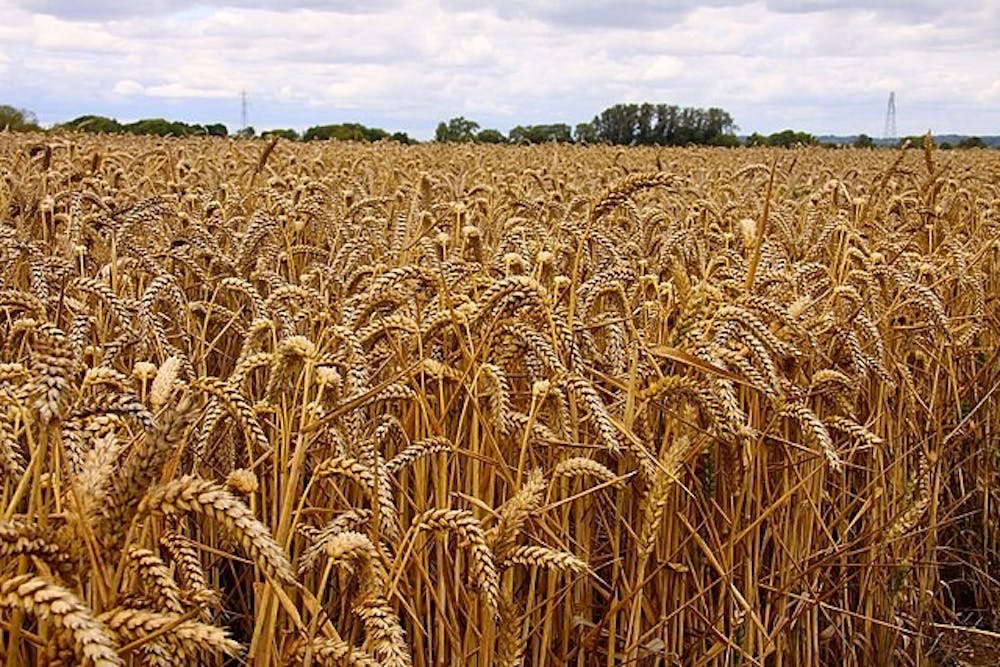During the Green Revolution of the mid-20th century, American agronomist Norman Borlaug selectively bred a wheat crop to have primarily edible kernels, eliminating the natural, inedible stems. Borlaug pioneered genetically modified food to increase crop yield and remedy global food shortages. Borlaug’s better breeding techniques combined with modern biotechnology and genetic engineering created 21st century GM food. One agro-corporations today, Monsanto-Bayer, developed Bt corn — a corn seed genetically altered to contain the pesticide Bacillus thuringiensis which wards off pests. The GM seeds succeeded in increasing crop yield — for every 10 percent Bt corn adopted, a 1.7 increase in crop yield followed. In a meta-analysis of 147 studies, GM crops on average resulted in a 22 percent increase in yield and a 68 percent increase in profit compared to non-GM crops. But better yield and profit unfortunately do not counterbalance the potential detriment GM crops cause.
Take the following case study. The mid-1800s Irish Potato Famine was a cautionary tale that signaled genetic diversity between crops protects a farmer’s harvest from invasive pathogens. A prior lack of genetic variability in Ireland allowed invasive pathogen P. infestans to wipe out the entire population of potatoes — all of which came from the same parent crop. Today it seems we repeat history. As of 2013, 80 percent of corn and 90 percent of soybeans grown in the U.S. were genetically modified products under the umbrella of the Monsanto-Bayer corporation. To add to this point of concern 82 percent of all U.S. corn was of the Bt, pest-deterring variant by 2020.
Monsanto-Bayer kills biodiversity by helping consolidate the agricultural industry — it is a national security risk. In this age of mutually assured destruction, the release of anonymous bioweapons are the cruel future to enfeeble enemy nations. Yale research documents that bioweapons are not necessarily always designed to directly target humans. Anti-agriculture and anti-livestock weapons exist that could wipe the food supply of an adversary nation. The 1972 Biological Weapons Convention legally prevents the U.S., among 183 state parties and four signatory states, from the development, production, acquisition, transfer, stockpiling and use of bioweapons. Yet loopholes stand two-fold. The U.S. and other signatories can still develop bioweapons in the name of defense not offense, and not all countries signed the convention. Agroterrorism is indeed plausible. Our government’s allowance of Monsanto-Bayer product dominance — such as Bt corn — in American agriculture makes agroterrorism’s target narrower in genetics and easier to assault.
Besides being a national security risk to our food, GM food strips farmers from their crop rights through corporate leverage of seed patents. Non-GMO farmers try to produce crops that avoid genetic modifications. However, due to cross-pollination from insects, wind and farmer error, non-GMO farmers are being sued for unintentionally growing corporate property — genetically patented seeds. In 2013, The Center for Food Safety found Monsanto filed lawsuits against 410 small farmers and 56 small businesses across 27 states. From its targeted attacks to protect patents, Monsato reaped over 23 million dollars by 2013. There is no reason to hyper-regulate small farmers and businesses when Monsanto already makes absurd profit from its rules and royalties.
To extend, Monsanto does not allow the saving of GM seeds season to season. A farmer must repurchase the GM seeds after each harvest. Take Monsanto's Brazilian division as a case study. “Monsanto is amoral… they will do anything for profit,” Brazilian soybean producer Luiz Fernando Benincá criticized. The comment came after Monsanto won a 2019 appeal to reinvoke the no-seed-saving policy and reestablish the 2 percent royalty on all Monsanto-Brazilian owned soybean seeds — a litigation worth 7.7 billion dollars. GM products produce higher yield and subsequently generate more profit, but the GM seed corporations glean the additional profit — not the small farmers.
Finally, GM food products lack essential research. Public funding for the GMO research programs is terrientially low. In the years after 1990, nearly 25 percent of all European GMO research programs shut down. Ironically, even with lack of research, the U.S. FDA claims on their website that GMOs are as safe as non-GMO food. The FDA goes on to claim that GM products are always regulated for safe consumption for humans and animals alike. This promise is historically false. In 1998, the EPA allowed for StarLink — a manufacturer of Bt corn — to come to market specifically for livestock feed. StarLink’s limited approval of consumption was due to the GM corn containing the Cry9c gene, which can trigger food allergies in humans if consumed. By the end of 2000, due to the cross-contamination of GM seeds, StarLink’s corn contaminated at least 50 percent of the entire U.S. yield — in-part meant for human consumption.
In sum, genetically modified food provides better yield and profit than non-GMO food. Does that discount the dark side? No. We need legislation that prioritizes biodiversity and defends against agroterrorism, a government that protects farmers' crop rights from corporations and a system of federal funding that researches and regulates any health effects of genetically modified food.
Rylan Dawson is an Opinion Writer for The Cavalier Daily. He can be reached at opinion@cavalierdaily.com.
The opinions expressed in this column are not necessarily those of The Cavalier Daily. Columns represent the views of the authors alone.





